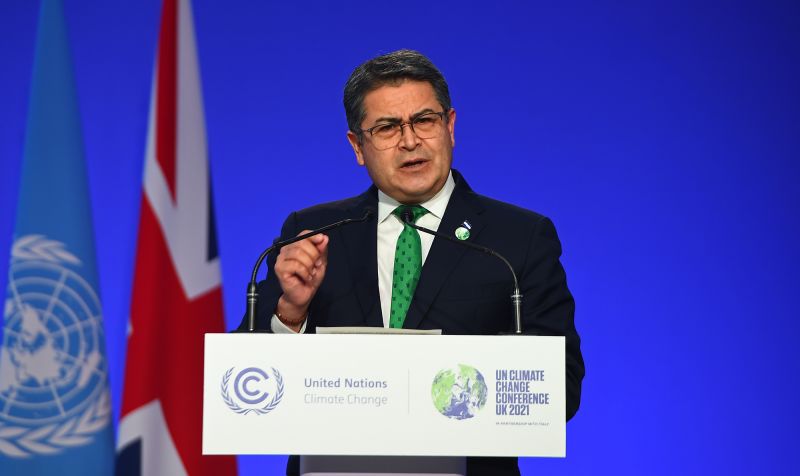The narrative of corruption in Honduran governance appears to have been reinforced following the sentencing of the former president of the country to 45 years in prison on charges related to drug trafficking. This significant development has sent shockwaves through the Central American nation’s political structure, highlighting the pervasiveness of drug-related organized crime across the continent.
Ex-president Juan Orlando Hernández, who led Honduras from 2014 to 2021, was convicted by a U.S. court after being found guilty of running a drug trafficking operation that funneled tons of cocaine to the United States. Hernández was arrested in February 2022, almost a year after leaving office amid noticeable political and societal turbulence. Interestingly, his presidency was already marred by widespread allegations of corruption, human rights abuses, and election fraud.
The charges against Hernández were comprehensive, spanning multiple facets of drug trafficking and money laundering. Prosecution depicted him as a central player in a vast and complex criminal network that spanned several countries and saw massive quantities of cocaine shipped to the United States. The U.S. prosecutors adeptly argued that Hernández was, in essence, a drug trafficker who happened to occupy the highest office in the land, having made use of the power and resources at his disposal to ensure the success of his illicit activities.
Hernández’s trial lasted for weeks and exposed a horrific tableau of a state deeply embroiled in drug trafficking. Testimonies painted a picture of a ruler who took millions in bribes from drug cartels, and even reportedly used Honduran military and law enforcement resources to protect drug shipments from being intercepted.
However, it wasn’t just testimony that led to Hernández’s downfall—he was implicated by undeniable material evidence. Physical data, wiretaps, financial records, and narco ledger entries all tied the former president to his illegal drug trafficking operations, making it hard for his defense team to provide a plausible counter-narrative.
The case against Hernández is not just about one man’s fall from grace—it reflects a broader issue that has been plaguing Central and South America for decades: drug trafficking and the corruption it breeds within political and societal structures. The United States, though geographically separated, has remained largely connected to this problem given its role as the largest consumer of narcotics. The country’s stringent anti-drug policies have been critical in highlighting its commitment to dismantling drug trafficking networks extending beyond its borders.
This landmark sentencing raises poignant questions about the levels of corruption within Central America’s political classes. The corruption, embedded over many years, only makes combating drug trafficking and enhancing democracy more daunting. The symbolical path forward begins with holding accountable those in power who propagate these illicit activities, as witnessed in the case of Hernández.
Despite a grim backdrop, the 45-year sentence of the former Honduran president can spark hope for the people of Honduras. The justice meted out reveals both the seriousness of international institutions in combating drug-related crimes and the potential for purging systemic corruption from political systems. However, the journey towards a corruption-free Honduras is a long and arduous one. The country’s current ruler and its political class must heed this as a lesson to adhere to ethical governance and safeguard the interests of the Honduran populace.




